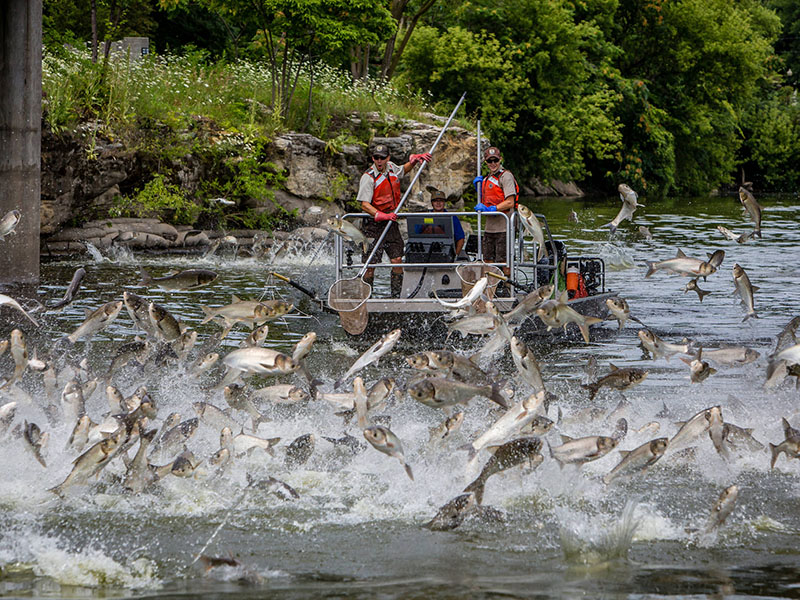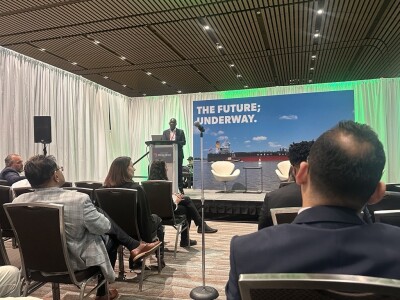The cost of a final plan to keep Asian carp from the Great Lakes at Brandon Road Lock & Dam — a key control point in Illinois — has nearly tripled to $778 million.
A just-published report by the Corps of Engineers recommends a technology alternative that includes electric barriers, an air bubble curtain and acoustic fish deterrent at the lock on the Des Plaines River near Joliet, Ill. A tentative plan issued last year had a price tag of $275.4 million which was raised for additional engineering and design work as well as environmental mitigation.
The Corps said it settled on this plan because it reduces the risk of the invasive carp getting into the lakes “to the maximum extent possible, while minimizing impacts on navigation.”
If the project is funded, work could be completed by 2027. A final engineering report is due to Congress in February. Comments may be made by Dec. 24 and sent to: [email protected].
In the final plan the project could be done all at once or in increments to minimize navigation disruption through in-water construction during planned maintenance closures of nearby locks on the Illinois Waterway.
The long-awaited plan for the Brandon Road lock, which handles about 11 million tons annually, is part of an issue that has pitted states, politicians and businesses against one another for several years. The recommendation is in addition to the Great Lakes and Mississippi River Interbasin Study (GLMRIS) released several years ago that outlined eight alternatives to stop the spread of the carp.
The most drastic would cut off the lakes from the Mississippi River basin and cost the barge, passenger vessel, chemical, agricultural and other groups billions. But the carp also threaten the Great Lakes’ $7 billion fishing and tourism industries.
The Corps received more than 1,400 comments on the draft report. The American Waterways Operators favored nonstructural alternatives, such as overfishing the carp population, arguing the draft proposal posed safety and operational issues as well as negative economic repercussions. The states want the lock closed, citing a high risk of environmental and economic damage from the fish.





